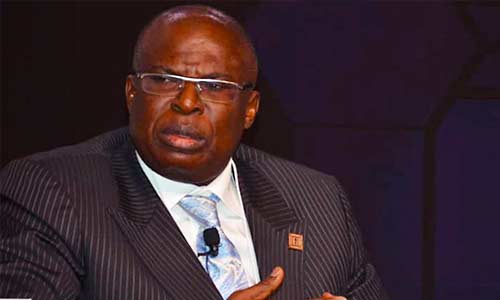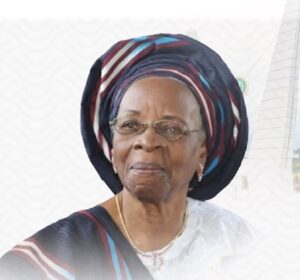Don’t allow nuisance litigation derail PIA’s implementation, FG tells judges

By Joseph Ayinde
Given the need to quickly reap the benefits of fossil fuels before their final extinction, the federal government yesterday told judges to beware of the antics of industry players whose nuisance litigations might hamper the smooth implementation of the new Petroleum Industry Act (PIA).
Speaking at a national oil and gas workshop for justices and judges in Abuja, with the theme: ‘‘Petroleum Industry Act: New Legal and Fiscal Regime in the Nigerian Oil and Gas Industry,” the Minister of State, Petroleum Resources, Chief Timipre Sylva, said given the interest the law has generated, the judiciary might soon have to deal with disputants whose opinions differ on how the law should be operationalised.
He noted that it was therefore necessary that members of the judiciary acquainted themselves with the philosophy and thrust of the law, with emphasis on those areas that are likely to be the most contentious.
The minister stressed that apart from the current COVID-19 pandemic which caused the strongest recession experienced globally since 1929, the industry faces other critical challenges, including many countries’ intent to comply with climate change policies with a target of being carbon neutral by 2050 or 2060.
According to him, this means that the usefulness of fossil fuels would diminish significantly, and even where they are still utilised, must be offset with some form of carbon capture technology.
In addition, he stated that global financing of fossil fuel projects has also been affected, with many donor nations and other major players within the financial ecosystem indicating their intention to stop funding projects fitting the description by 2025. He argued that this would inevitably impact on the ability of industry players to access needed funds with which to bring assets into production and by extension, reduce government revenue ordinarily derivable from the extractive industry.
Sylva listed other challenges as the volatility of global crude prices, the cut in Organisation of Petroleum Exporting Countries (OPEC) quota and proliferation of countries finding of hydrocarbons, noting that these have affected the demand for crude oil as well as the revenue and profits accruable therefrom.
“The above scenario provides the context within which your lordships will preside over cases that are brought for adjudication in your respective courts. Our current realities necessitate that cases be treated with dispatch and urgency as the luxury of time is no longer available.
“In this regard, your lordships will have a crucial role in ensuring that counsel do not defeat the intent, spirit and letter of the law by resorting to practices whose nuisance value far outstrips the usefulness of any such interventions when they are subjected to the overarching test of the national interest,” he noted.
Sylva emphasised that the new law overhauls the legal and regulatory framework of the Nigerian petroleum industry and clarifies the rules of engagement for the monetisation of its valuable hydrocarbon resources to establish good governance, competitiveness, global best practices and the ease of doing business within the petroleum sector.
Furthermore, he explained that the PIA was designed to guarantee early revenue for government, clarify roles and simplify administration of the sector, infuse transparency and predictability in regulation as well as ensure equity and fairness for all industry players.
He pointed out that before the PIB was passed into law, several engagements were held with key domestic and international industry stakeholders, including industry players and operators, with a view to generating some level of consensus as to what the final provisions of the law would be.
While every care was taken to accommodate different shades of opinions in the law, the minister stated that there were people who still felt that everything they wanted in the law was not reflected and so may feel the need to litigate unnecessarily to challenge certain aspects of the law.
“Again, your lordships are respectfully enjoined to be aware of such antics and to patriotically disavow them if and when they ever arise.
“The above notwithstanding, we do not posit that the law is perfect in its current form and so it lends itself to the possibility of amendments just like any other piece of legislation,” he added.
Sylva stressed that the judges’ interpretation, pronouncements and decisions on matters that come before them would be at the heart of the jurisprudence of the practice of the PIA area of the law.
He urged critical stakeholders to be patient as the implementation of the new law begins, noting that their views on implementation would be considered as part of the overall endeavour to operationalise the law in a manner that best guarantees the realisation of its objectives.
“Participants are assured that their voices will be heard and every effort will be made to integrate the best of ideas and interventions into the implementation process.
“We appeal for understanding in instances where particular viewpoints are not accepted for implementation because it is impossible to accommodate every opinion as these may sometimes be conflicting and contradictory to the design philosophy,” he said.
Chief Justice of the Federation, Dr. Tanko Muhammad, who led the judiciary to the occasion, expressed the hope that the forum would expose judges and build their capacities to administer the relevant laws, adding that the PIA was to lay the framework for efficient governance in the oil and gas industry.
He added that the judiciary was not oblivious that certain parts of the law would naturally induce conflicts which would require a judicial official to have a proper grasp of the provisions of the new law during their interventions.






